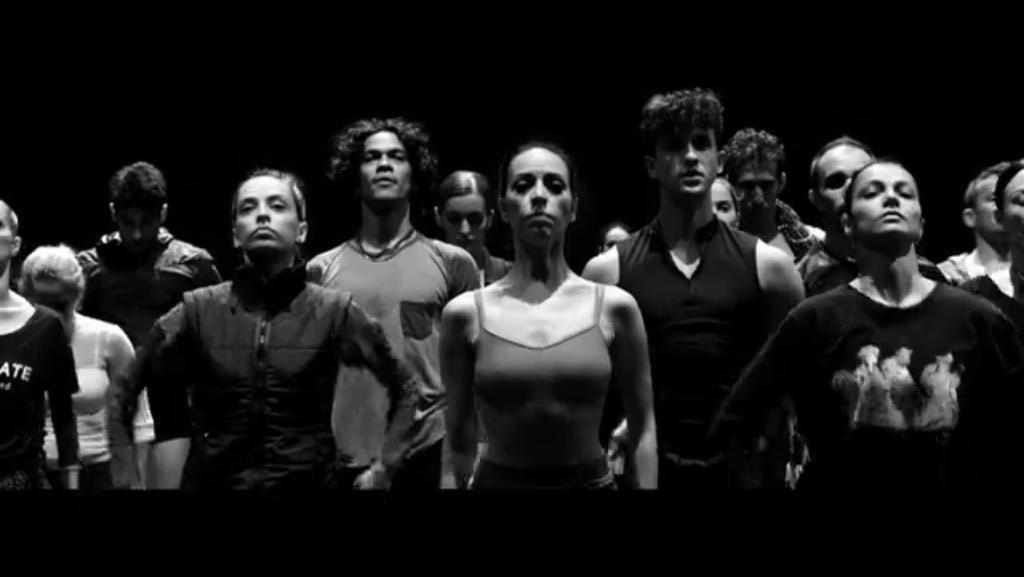Patrizia Landi is a Brazilian director, focused on documentaries and documentary series. “Ressaca” is her second feature film. In 2012, she directed “Hijas del Monte,” which depicts the lives of former FARC soldiers in Colombia. “Hijas del Monte” won Best Documentary at the 2012 Women in Focus International Festival for Gender Equality.
“Ressaca” will screen at the 2019 Full Frame Documentary Film Festival on April 4. The film is co-directed by Vincent Rimbaux.
W&H: Describe the film for us in your own words.
PL: “Ressaca” portrays a microcosm capable of explaining the hardship Brazil is facing these days. Through the lives of the three main characters, we intend to show the atmosphere of delusion, despair, and anger.
Most of all, we want to show the capacity of rebuilding oneself, the strength to overcome such an undignified reality, and the effort of doing it with grace and without resentment — and through art. Brazilians are experts at doing that.
W&H: What drew you to this story?
PL: I was invited by my co-director Vincent Rimbaux and producer Stephanie Lebrun to take part in the film. When I arrived, the main idea was to follow a dancer who had just become an Uber driver. Ultimately we discovered other interesting characters that could add a lot to the story.
W&H: What do you want people to think about when they are leaving the theater?
PL: I will have done my job if people leave the theater without being able to think at all. I want people to be impacted mostly by feelings, and I think “Ressaca” does this very well.
Many times we listen to people saying, “I just watched the movie, and I have no words. I need to digest.” This is what I want to provoke. I want to be able to deliver a cinematographic experience, which means each person will be impacted by the film in a very unique way, according to their own [experiences and beliefs].
I think that’s why I’m a documentary filmmaker. I want to give less information and more silence, which says much. Once you deliver a film, your original plans or intentions for the film dissolve like air. This is the beauty of it all.
W&H: What was the biggest challenge in making the film?
PL: Because “Ressaca” is not a scripted story, the anxiety of not knowing what would happen next was the biggest challenge. But at the same time, this is the nature of the type of documentary we wanted to do, so we were prepared. Many times, we planned something that never happened, or put energy into someone that never evolved.
Also, we were dealing with a public institution with a very strict hierarchy, as well as more than 500 ballet dancers. So it took us three years to complete the film even though we had planned six months.
W&H: How did you get your film funded? Share some insights into how you got the film made.
PL: Of course this is not the best way to start a project, but we actually didn’t raise any money to start the film. It was a risk that producer Stephanie Lebrun from Babel Studios took.
We were lucky that the theater was very near to the office and we were able to be there every day without spending much money. But of course, we spent a huge amount of time. So the insight I can give is to try to surround yourself with sensitive people, who are able to foresee the potential of a good story and trust your work.
W&H: What inspired you to become a filmmaker?
PL: When I was still attending university, I saw the Brazilian documentary “Estamira,” directed by Marcos Prado. By the end of the film, I knew I would try to live for making documentaries. It was not an easy choice, especially in Brazil and especially these days.
W&H: What’s the best and worst advice you’ve received?
PL: Best: Never do a documentary about a postal service. Do a documentary about a letter.
Worst: It’s not exactly an advice, but a praxis in the Brazilian filmmaking market: huge crews. I never believed that and never followed that. For me, two people is the golden number for a documentary crew.
W&H: What advice do you have for other female directors?
PL: Keep your eyes wide open. There are great stories happening in front of you all the time, so be aware. Listen to people, or at least to the relevant ones. Trust your sensibility, honor the characters you chose, treat them with respect, and look them in the eye. They are your treasure, the heart of everything. Build a connection with them, and they will give you their souls in return.
W&H: Name your favorite woman-directed film and why.
PL: Maria Augusta Ramos is my favorite woman director because of her unique way of explaining the Brazilian reality. She is someone who is able to explain the world without a single word, using only a fixed camera.
W&H: It’s been a little over a year since the reckoning in Hollywood and the global film industry began. What differences have you noticed since the #MeToo and #TimesUp movements launched?
PL: This movement is happening strongly in the Brazilian film industry, and inappropriate behaviors are being severely punished. But in terms of representation, there’s still a long way to go.







